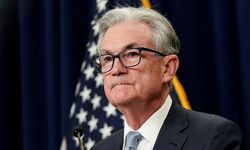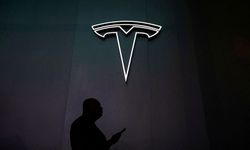The sudden poor performance of Europe's largest economy has set off a wave of criticism, concern and debate about the way forward.
As Euronew reports, Germany, Europe's biggest economic powerhouse, has dominated global markets for high-end products such as luxury cars and industrial machinery. It has sold so much to the world that half of its economy depends on exports. While other European countries were drowning in debt, German jobs grew and government coffers expanded.
Now Germany is the world's worst-performing major developed economy. The International Monetary Fund (IMF) and the European Union expect Germany to shrink this year.
This comes in the wake of Russia's invasion of Ukraine and the loss of Moscow's cheap natural gas, an unprecedented shock to Germany's energy-intensive industries, long Europe's manufacturing center.
RISK OF DEINDUSTRIALIZATION
Christian Kullmann, CEO of major German chemical company Evonik Industries AG, said high energy costs and government inaction in the face of other chronic problems could cause new factories and high-paying jobs to be shifted elsewhere.
Germany faces the risk of "deindustrialization," Kullmann warned. From his 21st-floor office in the western German city of Essen, Kullmann points to symbols of earlier success in the historic Ruhr Valley industrial region: The chimneys of metalworking factories, giant waste heaps from now-closed coal mines, a massive BP oil refinery and Evonik's sprawling chemical production plant.
These days, the former mining area is a symbol of the energy transition, full of wind turbines and green spaces.
The loss of cheap Russian natural gas needed to power factories "has painfully damaged the business model of the German economy," Kullmann said.
After Russia cut off most of its gas supplies to the European Union, the German government asked Evonik to keep its 1960s-era coal-fired power plant running for a few more months.
As part of its plans to become carbon neutral by 2030, the company is switching from this plant to two gas-fired generators that could later run on hydrogen.
One solution under discussion is a government-funded cap on the price of industrial electricity to help the economy transition to renewable energy.
FACTS TO LIGHT COME
The money available to the government was partly due to delays in investment in roads, the rail network and high-speed internet in rural areas. In 2011, Germany's decision to close its remaining nuclear power plants was called into question amid concerns about electricity prices and shortages. Companies face a severe shortage of skilled labor and job vacancies have fallen to a record low of less than two million.
Relying on Russia for gas supplies through the Nord Stream pipelines under the Baltic Sea has been recognized as a mistake.
Now clean energy projects are slowed down by heavy bureaucracy. In southern Bavaria, distance restrictions to houses keep the annual construction of wind turbines in single digits.
A €10 billion power line to transport wind energy from the north to industry in the south has faced delays due to political resistance. Burying the line means it will be completed in 2028 instead of 2022.
Meanwhile, energy-intensive companies are struggling to cope with the price shock.
EUROPE'S SICK MAN
Holger Schmieding, chief economist at Berenberg bank, says Germany has become complacent during the "golden decade" of economic growth between 2010 and 2020. In a 1998 analysis, Schmieding called Germany "the sick man of Europe", but he believes that this label would be exaggerated today, given low unemployment and strong public finances. This gives Germany room for maneuver but reduces the pressure to make changes.
According to Schmieding, the most important step would be to end the uncertainty over energy prices. Whatever policies are chosen, he said, "it will already be a big help if the government can agree on them quickly so that companies know what they are up against and can plan accordingly, rather than postponing investment decisions."















